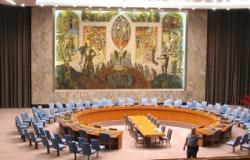
The relationship between law and negotiation is increasingly at the forefront of the international agenda. International organisations whose role includes the mediation of peace, such as the Mediation Support Unit of the United Nations, and the European Union, are seeking to understand the relationship between mediation, law and justice in conflict and post conflict societies. While such organisations acknowledge that international law places normative constraints on the practice of peace making, they also recognise that key principles of mediation, such as consent, inclusivity and local ownership, are crucial to the success of negotiated peace processes (United Nations, 2012). These questions have risen to the top of international policy agendas, but there is little academic scrutiny of how the relationship between law and negotiation itself it to be negotiated (Kastner, 2015). Research to date has focused on discrete aspects of the relationship between law and negotiation, such as the role of human rights in peace agreements (Bell, 2000), or in setting transitional justice priorities (Bell 2008; Wierda, 2010). It has not addressed the overarching question of the relationship between law and negotiation that underpins these divisive issues. Binding norms as well as normative expectations serve to shape the mediation process. Yet while law can play a key role in providing guidance for peacemakers, and in providing legitimacy for peace agreements, it can also come into conflict with the political task of negotiation.